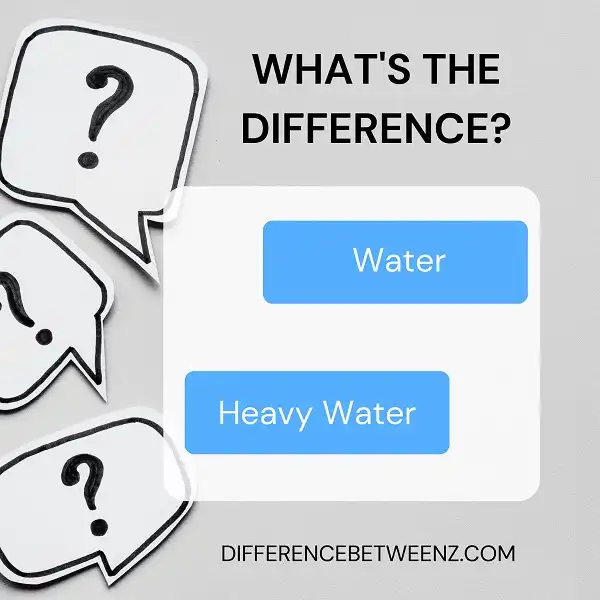Water Vs. Heavy Water
If you want to learn the difference between water and heavy water, then you have landed at the right place.
Below this post is all about the difference between water and heavy water.
Heavy water has a slightly higher boiling point when compared to water
Difference between Water and Heavy water
Water
Water is a chemical compound essential for almost all life forms. It is interesting to know that a single drop of water contains billions of molecules.
The formation of a water molecule takes place combination of two hydrogen atoms and one oxygen atom (H2O).
In its pure form, it is colorless, odorless, and has no taste.
It is a unique substance and can be found naturally in the three states in which matter can be: solid, liquid, and gaseous.
It is known as the “universal solvent”. Boil at 100 ° Celsius and freeze at 0 ° Celsius.
Heavy water
Heavy water (deuterium oxide) is also water but contains two atoms of the deuterium isotope. It differs from normal water in terms of its density.
Like water, heavy water also occurs naturally. However, it is not as common as normal water.
Due to the isotopic substitution with deuterium, it affects the binding energy of Hydrogen(H) and Deuterium (D).
This is the detail responsible for causing changes in various physical and chemical properties of heavy water.
Key Difference between Water and Heavy Water
- Normal water is composed of two hydrogen atoms and one of oxygen (H2O),
- Heavy water is a composition of two atoms of isotope deuterium and one of oxygen (D2O).
- Heavy water is 11% more dense than tap water.
- The degree of acidity of heavy water is greater than that of normal water.
- We cannot drink Heavy water, while normal water we can.
- Ice floats in normal water, but not in heavy water.
- Boiling point of water is 100 degrees, it is 101.4 degrees for heavy water.


